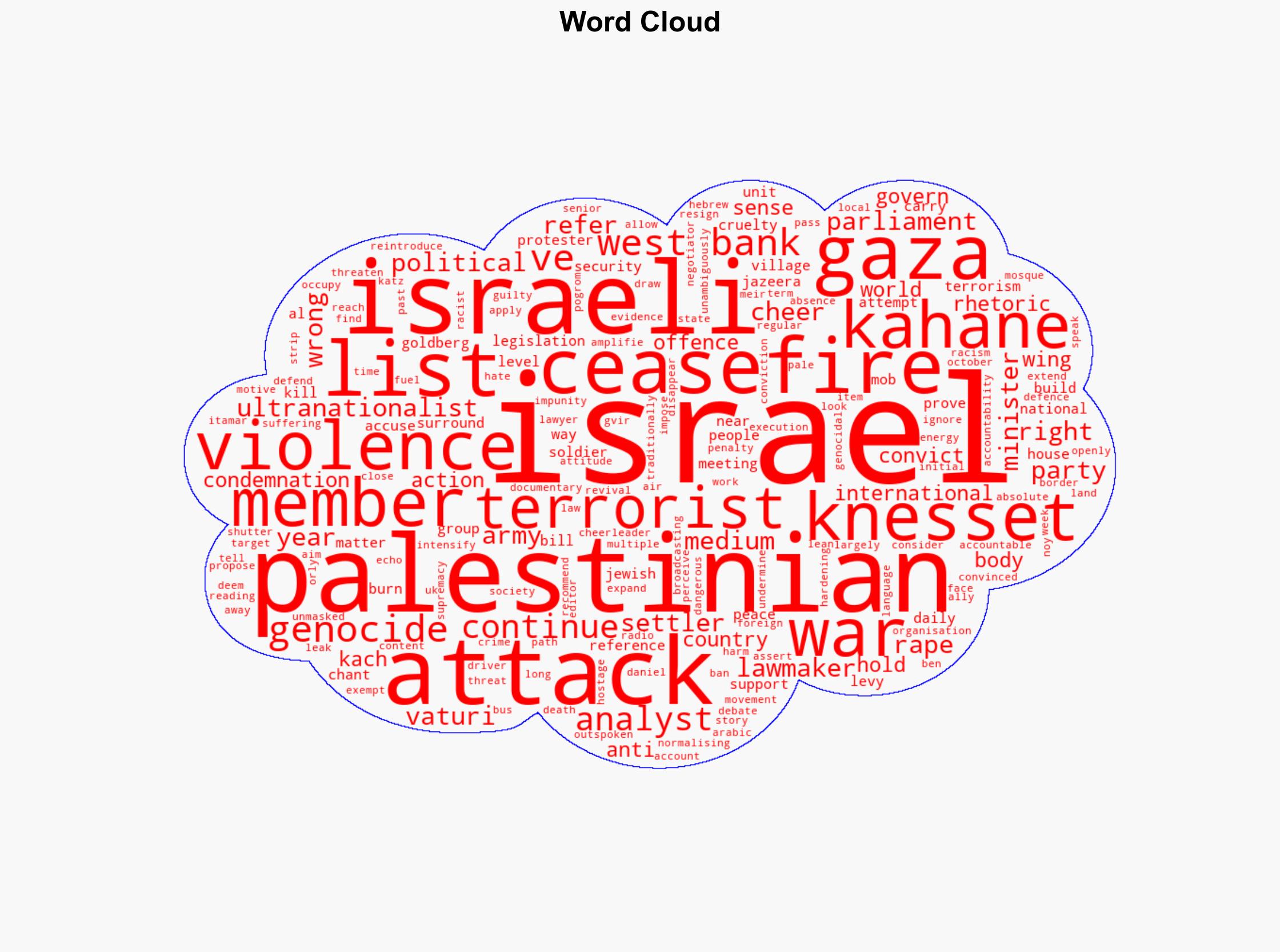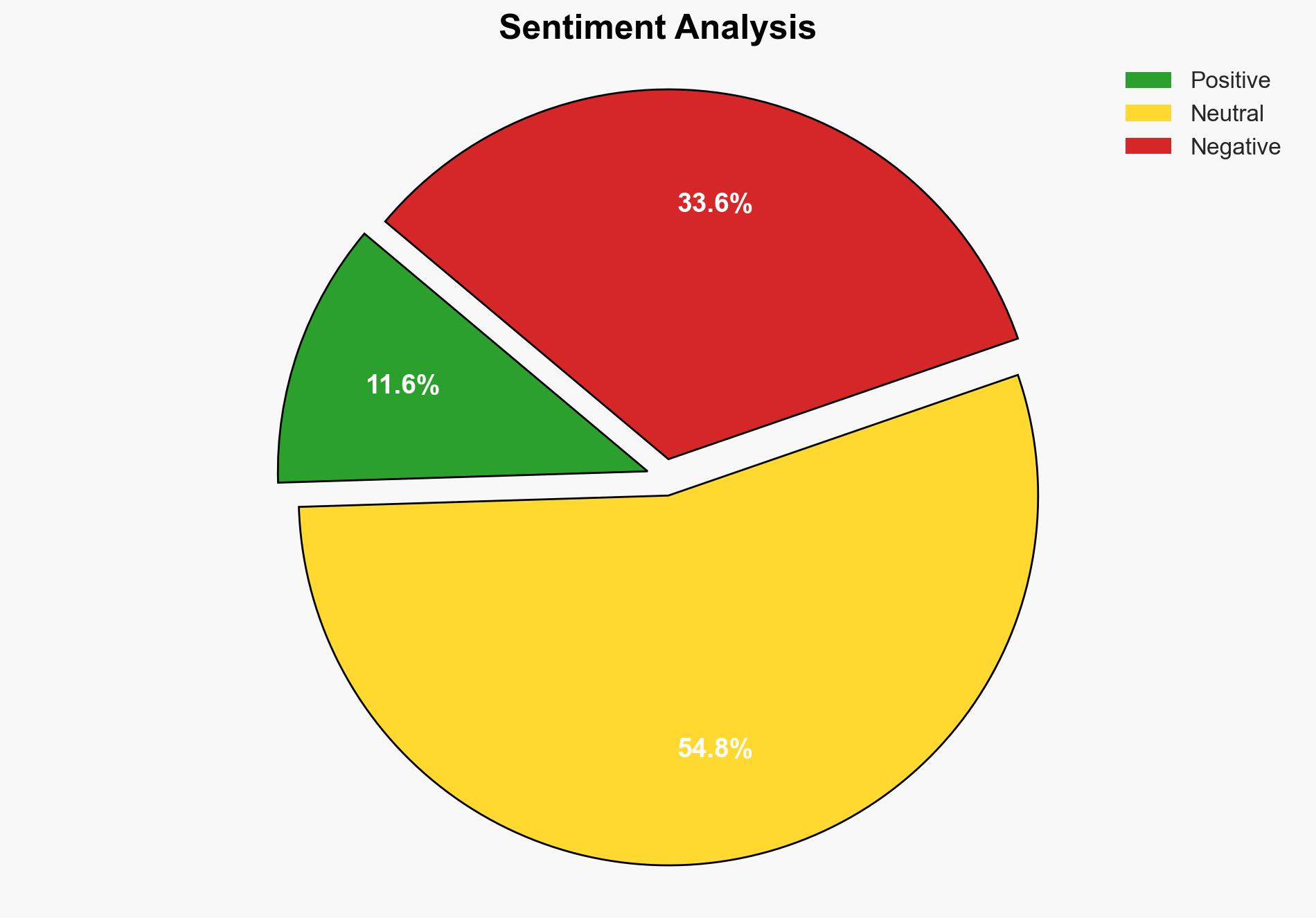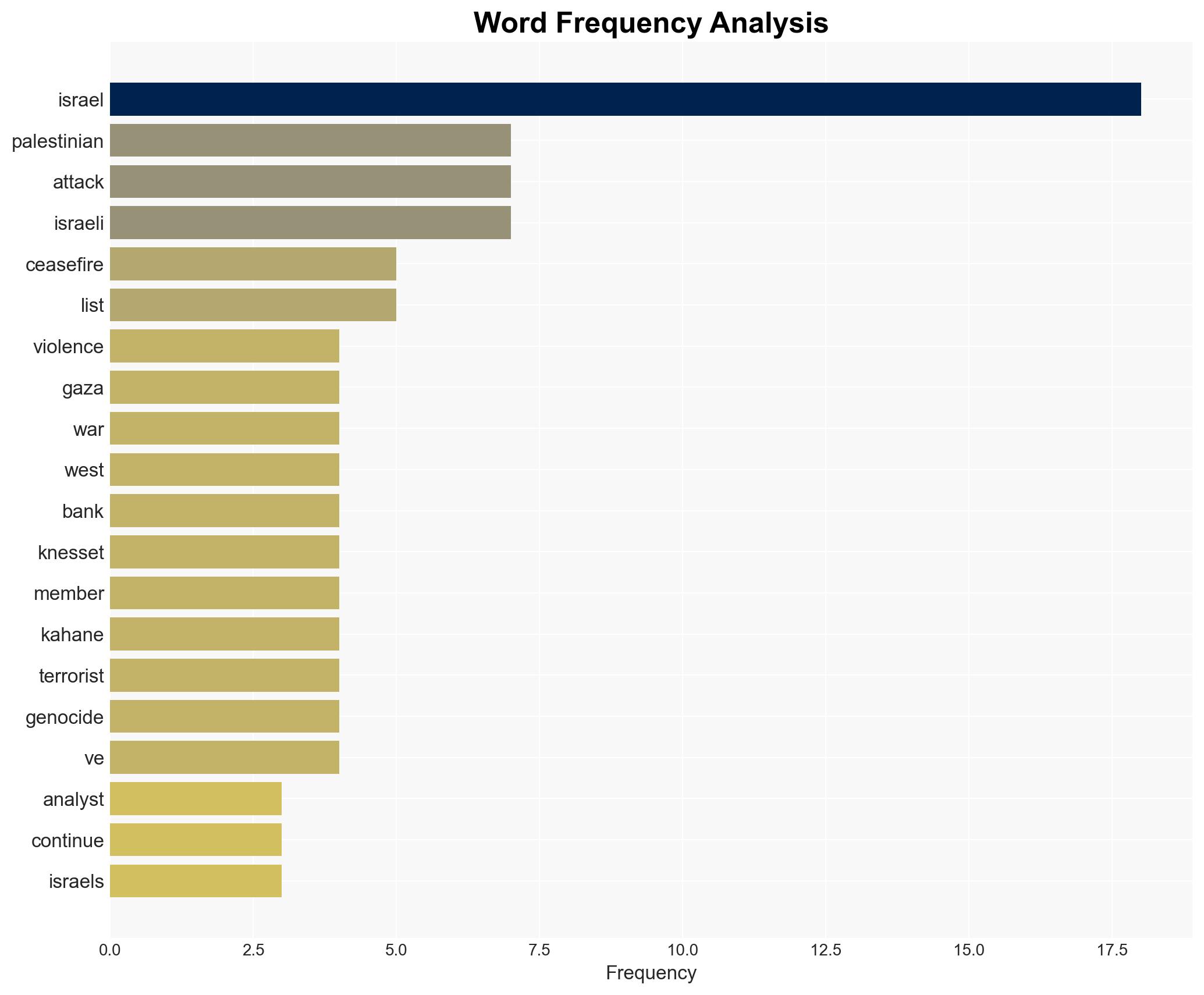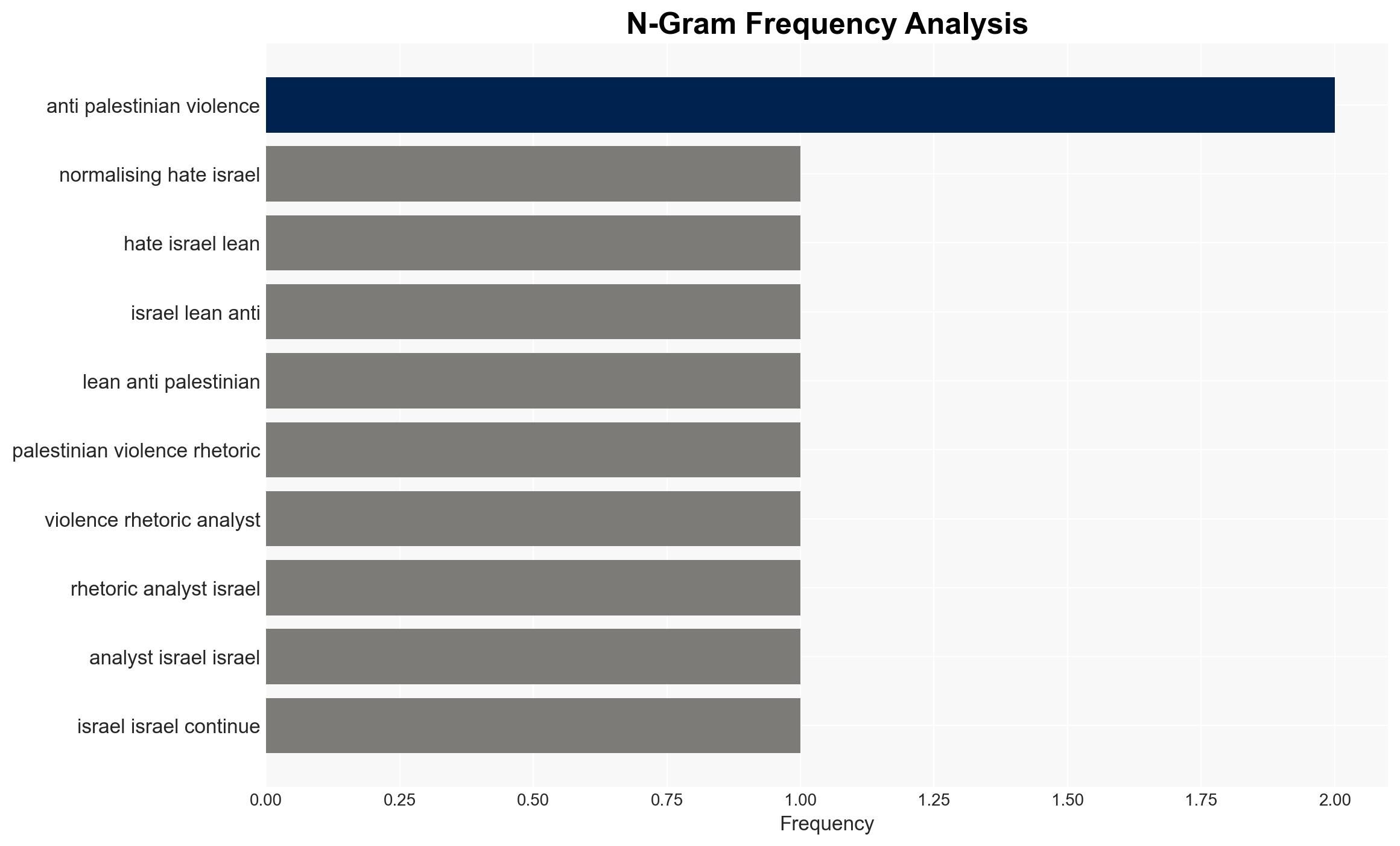Normalising hate Israel leans in to anti-Palestinian violence rhetoric – Al Jazeera English
Published on: 2025-11-14
AI-powered OSINT brief from verified open sources. Automated NLP signal extraction with human verification. See our Methodology and Why WorldWideWatchers.
Intelligence Report: Normalising hate Israel leans in to anti-Palestinian violence rhetoric – Al Jazeera English
1. BLUF (Bottom Line Up Front)
The strategic judgment is that Israel’s current trajectory of normalizing anti-Palestinian rhetoric and violence is likely to escalate tensions both domestically and internationally. The most supported hypothesis is that this rhetoric and legislative actions are part of a broader strategy to consolidate domestic political power and suppress Palestinian dissent. The recommended action is to increase diplomatic engagement and pressure to encourage accountability and de-escalation. Confidence Level: Moderate.
2. Competing Hypotheses
Hypothesis 1: The intensification of anti-Palestinian rhetoric and violence is a deliberate strategy by Israeli political leaders to consolidate power and suppress dissent, leveraging nationalist sentiments to maintain control.
Hypothesis 2: The increase in anti-Palestinian rhetoric and violence is a reactionary measure in response to perceived security threats and international isolation, rather than a premeditated strategy.
Hypothesis 1 is more likely given the evidence of legislative actions targeting Palestinians, the historical context of similar strategies, and the lack of significant international repercussions. Hypothesis 2 is less supported due to the absence of immediate security threats justifying such measures.
3. Key Assumptions and Red Flags
Assumptions: It is assumed that Israeli leadership is rational and strategic in its policy decisions. It is also assumed that international bodies have limited influence over Israeli domestic policy.
Red Flags: The potential for biased reporting from both Israeli and Palestinian sources. The risk of underestimating the impact of international diplomatic pressure.
Deception Indicators: Possible manipulation of media narratives to justify legislative actions and downplay violence.
4. Implications and Strategic Risks
The continuation of this rhetoric and legislative agenda poses several risks: increased domestic unrest among Palestinian populations, potential for international condemnation and sanctions, and the escalation of violence in the region. Politically, this could lead to further isolation of Israel on the global stage, while economically, it may affect foreign investment and tourism. Informationally, it risks polarizing narratives and increasing misinformation.
5. Recommendations and Outlook
- Engage in multilateral diplomatic efforts to encourage de-escalation and accountability.
- Monitor and counter misinformation campaigns that may exacerbate tensions.
- Encourage dialogue between Israeli and Palestinian leaders to address grievances and seek peaceful resolutions.
Best-case scenario: De-escalation of rhetoric and violence through diplomatic intervention.
Worst-case scenario: Escalation into widespread violence and international isolation.
Most-likely scenario: Continued normalization of anti-Palestinian rhetoric with periodic international criticism but limited tangible consequences.
6. Key Individuals and Entities
Itamar Ben Gvir, National Security Minister; Daniel Levy, Israeli peace negotiator; Orly Noy, Editor.
7. Thematic Tags
Structured Analytic Techniques Applied
- Cognitive Bias Stress Test: Expose and correct potential biases in assessments through red-teaming and structured challenge.
- Bayesian Scenario Modeling: Use probabilistic forecasting for conflict trajectories or escalation likelihood.
- Network Influence Mapping: Map relationships between state and non-state actors for impact estimation.
Explore more:
National Security Threats Briefs ·
Daily Summary ·
Support us
·





